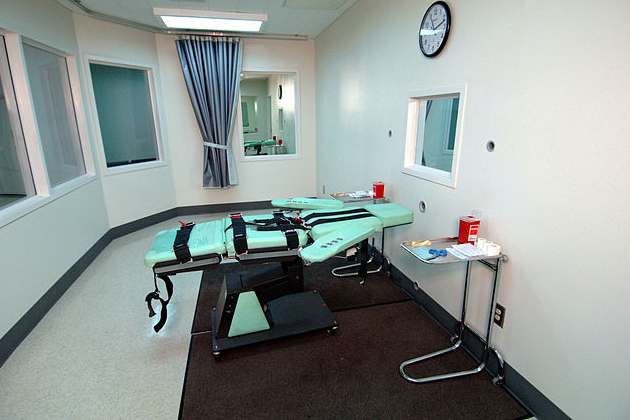
AVN Photo Lab/Shutterstock
The state of Ohio planned to illegally import sodium thiopental, a drug used for executions, according to a Food and Drug Administration letter obtained by BuzzFeed through a Freedom of Information Act request.
The June letter says that Ohio planned to “obtain bulk and finished dosage forms of sodium thiopental.” Since the drug is not available in the US, wrote Domenic Veneziano, director of the FDA’s import operation, “we assume this product would be purchased from an oversees source.”
Veneziano reminded Ohio Director of Rehabilitation and Correction Gary C. Mohr that “there is no FDA approved application for sodium thiopental, and it is illegal to import an unapproved new drug into the United States.”
According to BuzzFeed:
The prison Ohio carries out executions in registered for a DEA license to import the drug last year for a “law enforcement purpose,” but until now it was unknown if the state actually intended to use the license.
Ohio, like many other death penalty states, shrouds its execution drug suppliers in secrecy. States argue the secrecy protects their suppliers from intimidation and embarrassment, while death row inmates and open government advocates argue it removes an important check on state power.
When Nebraska received a similar letter from the FDA last year, it came out that the state paid an Indian dealer named Chris Harris more than $50,000 for enough sodium thiopental to execute hundreds of prisoners. (Nebraska has since abolished the death penalty completely.)
BuzzFeed followed up with Ohio corrections department to find out if Harris was the planned supplier for Ohio as well.
When approached by BuzzFeed News about Harris in June, Ohio DRC spokesperson JoEllen Smith said the department’s legal division would have to handle the matter. After spending weeks on the request, she only would say that Ohio had not communicated with Harris’s company, Harris Pharma, but did not specifically answer the question of if the state had purchased from him directly or indirectly. Smith did not respond to follow up questions.
Ohio’s last execution took place in January 2014, when the state gave inmate Dennis McGuire 10 milligrams of midazolam, a controversial sedative whose use for lethal injections the Supreme Court recently upheld. Ohio plans a new series of executions beginning in 2016.
Many reputable drug manufacturers don’t want to be associated with the death penalty, much less the botched executions that have prevailed of late. The FDA-approved manufacturer of sodium thiopental stopped making the drug in 2011 so that it couldn’t be used for this purpose. When Missouri announced plans to use propofol, the drug found in Michael Jackson’s body at the time of his death, for executions, its German manufacturer expressed displeasure and threatened to get the European Union to stop exporting it the US completely. Many states are now struggling to find the drugs they need for executions.
This fact is compounded in Ohio, whose governor, Republican presidential candidate John Kasich, signed a “secret executions” bill this winter that exempts anyone participating in a lethal injection from public records requests. Under the law, medical and nonmedical staff, companies transporting or preparing supplies or equipment used in executions, and providers of the drugs used in lethal injections are all protected from public records requests and do not need to reveal their identity or duties.













